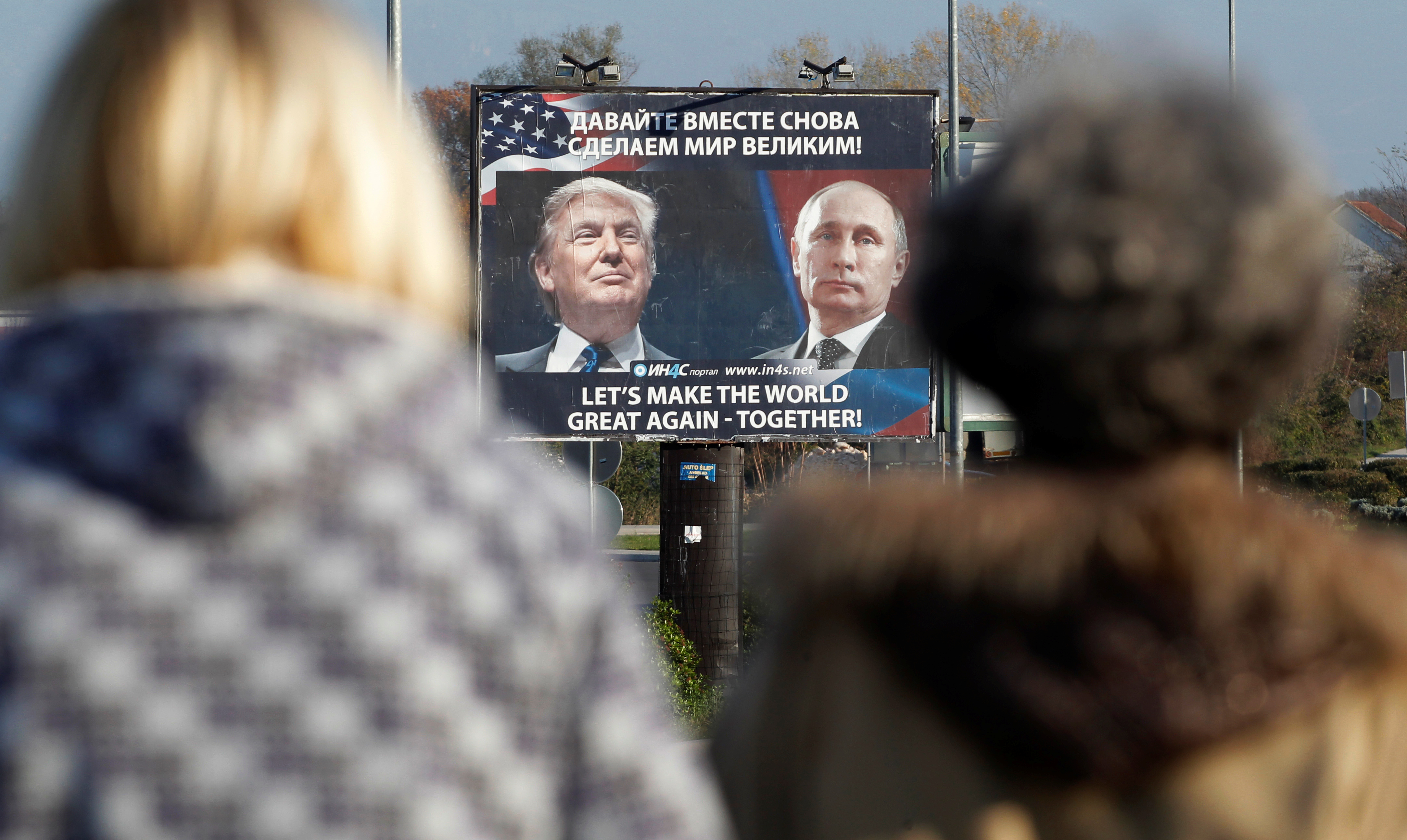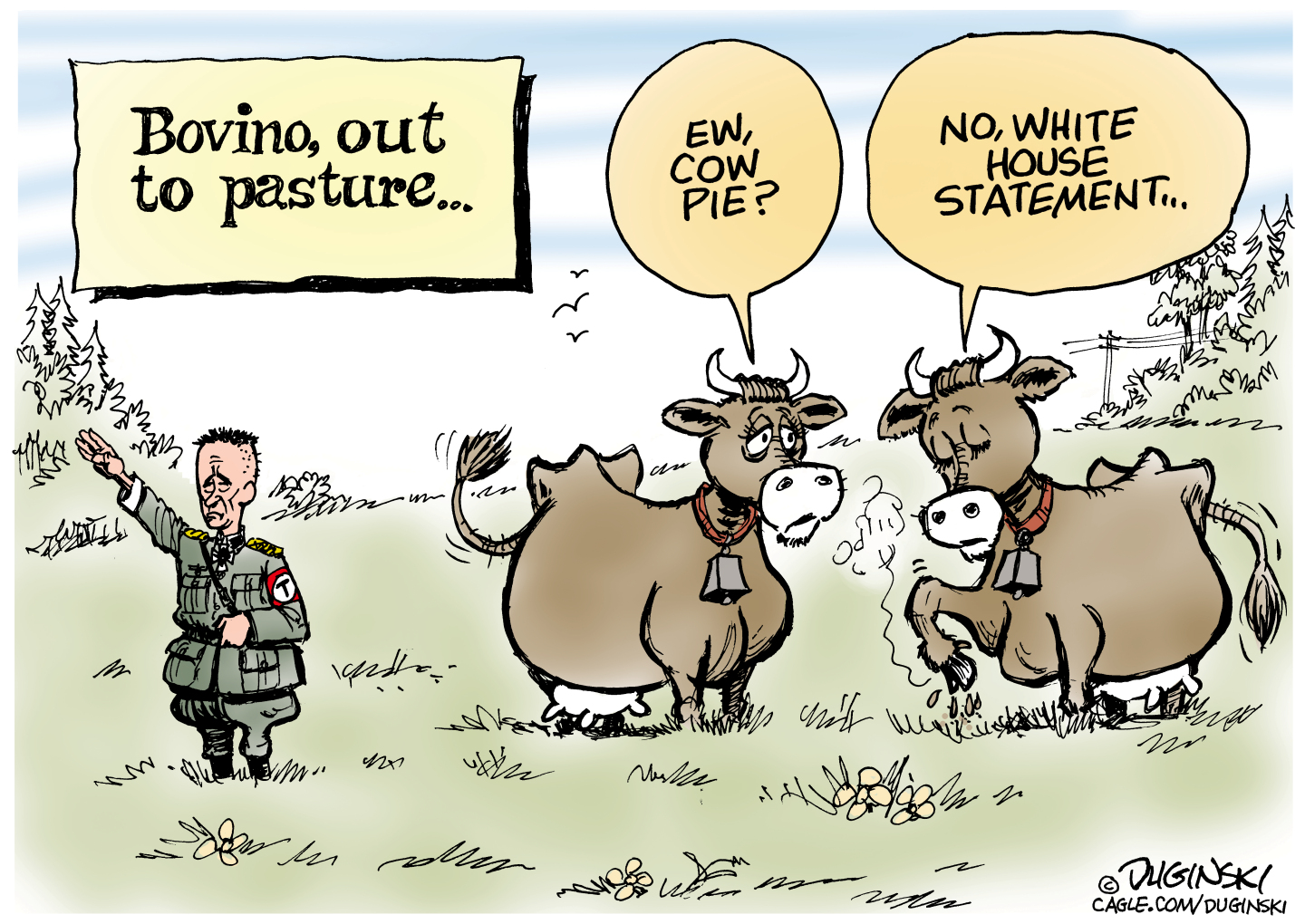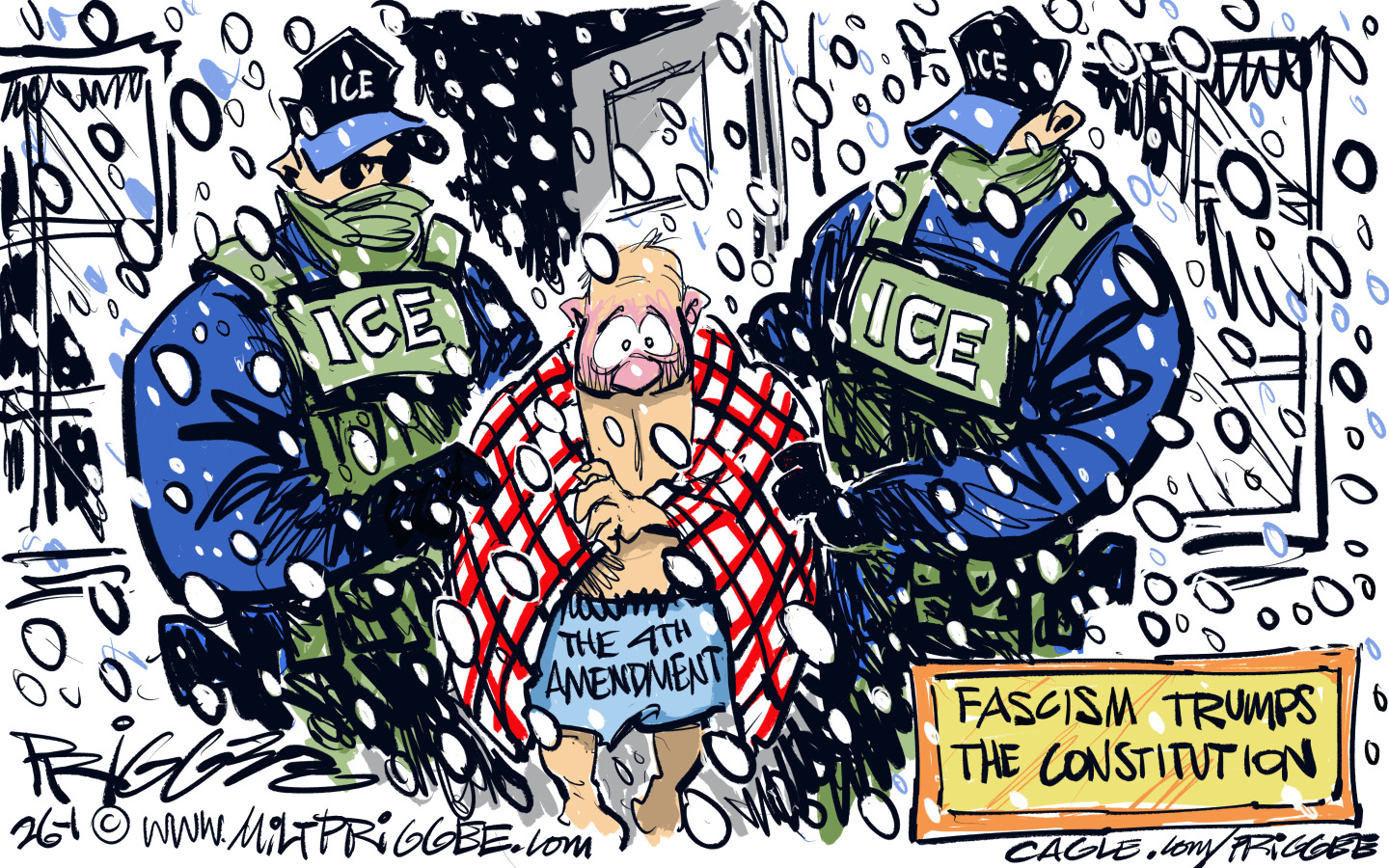How Donald Trump's path to power eerily parallels Vladimir Putin's
There are many differences, of course. But the similarities are unsettling.


The story of Vladimir Putin's rise begins with the fall of the Soviet Union in 1991.
There were two schools of thought on how to reform and liberalize the crumbling communist empire. The "gradualists" wanted to move slowly into capitalism. The "shock therapists" wanted to do it all at once, by immediately removing government control over wages and prices, imposing austerity, and privatizing everything. When the Soviet Union officially dissolved, the shock therapists got their way.
In their book The Body Economic, professors David Stuckler and Sanjay Basu document the epic disaster that resulted. Workplaces in the Soviet era were sources of social aid: childcare, medical care, and more. Life for many under communism, while grim and repressive, was at least stable and functional. Shock therapy destroyed those community foundations. Companies were dissolved, with shares sold off to the financial markets and Russian elites pocketing the cash, creating a new kleptocratic class.
The Week
Escape your echo chamber. Get the facts behind the news, plus analysis from multiple perspectives.

Sign up for The Week's Free Newsletters
From our morning news briefing to a weekly Good News Newsletter, get the best of The Week delivered directly to your inbox.
From our morning news briefing to a weekly Good News Newsletter, get the best of The Week delivered directly to your inbox.
The number of billionaires in Russia exploded. But GDP fell. Unemployment jumped to 22 percent by 1998. Something like 25 to 40 percent of the population was in poverty. Life expectancy among Russian men fell by seven years, and alcoholism and suicide were rampant. The Russians hardest hit were those in nonprofessional and manufacturing work, as the gap between their life expectancy and that of the upper class rose dramatically.
Stuckler and Basu note that this was not the fate of other former Soviet countries like Poland that took the gradualist approach. It was the specific policy choices of shock therapy that drove Russia into the ground.
This brings us to Putin himself. A former KGB agent who rose through the ranks of post-Soviet politics, Putin was appointed prime minister by Russian President Boris Yeltsin in 1999, and won the presidential election the next year. He has been in power ever since.
Putin draws support from the working classes hit hardest by the Soviet collapse, while the urban liberal upper class is his main antagonist, as Julia Ioffe recently explained. Putin conjures this support by promising prosperity and security, thumping a sort of right-wing nationalism, and cracking down on protesters and political opponents. And indeed, unemployment has gone down under Putin, while the average standard of living in Russia has increased.
A free daily email with the biggest news stories of the day – and the best features from TheWeek.com
Does any of this sound familiar? It should. Because something similar has happened in America in recent decades.
In the 1980s, President Ronald Reagan busted unions, deregulated industries, and led a tax-cutting charge that destroyed the barriers to elite accumulation of mass wealth. Reagan and his acolytes declawed anti-trust enforcement, allowing the merger frenzy of the 1980s to create corporate behemoths that bled the rest of the country. As with the rise of the kleptocrats in Russia, American companies were stripped down and sold off to benefit Wall Street rentiers, dumping the money into the financial market.
A long-running failure to truly address unemployment followed, giving far too much social and economic leverage to business owners and financial titans. Globalization provided its own small-scale "shock therapy," throwing American towns and factories into sudden international competition, ripping up communities across the country. Union membership collapsed, and — in yet another mirror of the Russian story — so did the high-pay, high-benefit jobs that provided the foundation for so many working- and middle-class families and communities.
It took a while for the full scope of the shifts to set in: There was the false dawn of the late 1990s, then the slow slide through the 2000s, culminating in the mass long-term unemployment and housing crisis of the Great Recession. Then there was the slow rot of America's new drug crisis and rising mortality rates for working-class groups, in yet more callbacks to the Russian story.
The Americans hardest hit by all this were manufacturing employees and the working class. Rural communities and smaller towns are now effectively exiled from American economic life. It was these places throughout the Midwest and the Rust Belt that swung hardest for Donald Trump.
Like Putin, Trump draws support from a working class pummeled by economic upheaval. He promises the return of jobs and to make our country great again. Trump's main opponents are the liberal educated elite, but he still draws considerable support from the reactionary upper class as well. Indeed, his administration is shaping up to be a kleptocratic grab bag of bankers and businessmen. Trump threatens rivals and promises retaliation against critics. In the context of an American history replete with white supremacy and Jim Crow, he's embraced the worst traditionalist streams of racism and reaction.
There are, of course, many differences between Putin and Trump. The economic destruction in America has been more regional and far less dire than in Russia. Trump comes to power in a nation whose history of democracy, institutions, and civic society are all stronger. And he barely eked out a win, riding atop the unique structural dysfunction of the Republican Party, and the historical fluke of the Electoral College.
In those differences may lie the hope that America can still learn, change, resist — and escape Russia's fate.
Jeff Spross was the economics and business correspondent at TheWeek.com. He was previously a reporter at ThinkProgress.
-
 5 redundant cartoons about Greg Bovino's walking papers
5 redundant cartoons about Greg Bovino's walking papersCartoons Artists take on Bovino versus bovine, a new job description, and more
-
 31 political cartoons for January 2026
31 political cartoons for January 2026Cartoons Editorial cartoonists take on Donald Trump, ICE, the World Economic Forum in Davos, Greenland and more
-
 Political cartoons for January 31
Political cartoons for January 31Cartoons Saturday's political cartoons include congressional spin, Obamacare subsidies, and more
-
 The billionaires’ wealth tax: a catastrophe for California?
The billionaires’ wealth tax: a catastrophe for California?Talking Point Peter Thiel and Larry Page preparing to change state residency
-
 Bari Weiss’ ‘60 Minutes’ scandal is about more than one report
Bari Weiss’ ‘60 Minutes’ scandal is about more than one reportIN THE SPOTLIGHT By blocking an approved segment on a controversial prison holding US deportees in El Salvador, the editor-in-chief of CBS News has become the main story
-
 Has Zohran Mamdani shown the Democrats how to win again?
Has Zohran Mamdani shown the Democrats how to win again?Today’s Big Question New York City mayoral election touted as victory for left-wing populists but moderate centrist wins elsewhere present more complex path for Democratic Party
-
 Millions turn out for anti-Trump ‘No Kings’ rallies
Millions turn out for anti-Trump ‘No Kings’ ralliesSpeed Read An estimated 7 million people participated, 2 million more than at the first ‘No Kings’ protest in June
-
 Ghislaine Maxwell: angling for a Trump pardon
Ghislaine Maxwell: angling for a Trump pardonTalking Point Convicted sex trafficker's testimony could shed new light on president's links to Jeffrey Epstein
-
 The last words and final moments of 40 presidents
The last words and final moments of 40 presidentsThe Explainer Some are eloquent quotes worthy of the holders of the highest office in the nation, and others... aren't
-
 The JFK files: the truth at last?
The JFK files: the truth at last?In The Spotlight More than 64,000 previously classified documents relating the 1963 assassination of John F. Kennedy have been released by the Trump administration
-
 'Seriously, not literally': how should the world take Donald Trump?
'Seriously, not literally': how should the world take Donald Trump?Today's big question White House rhetoric and reality look likely to become increasingly blurred
